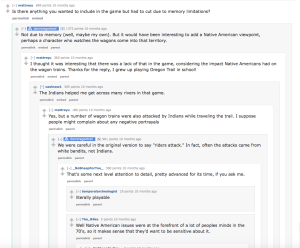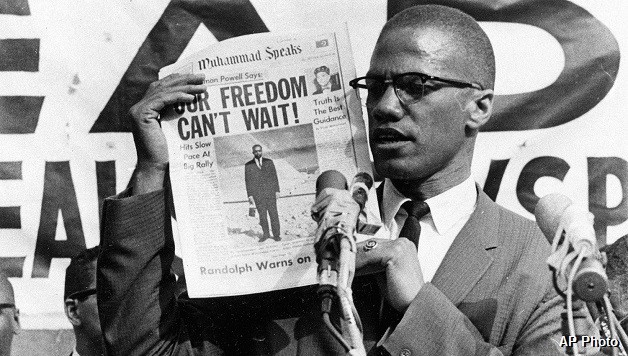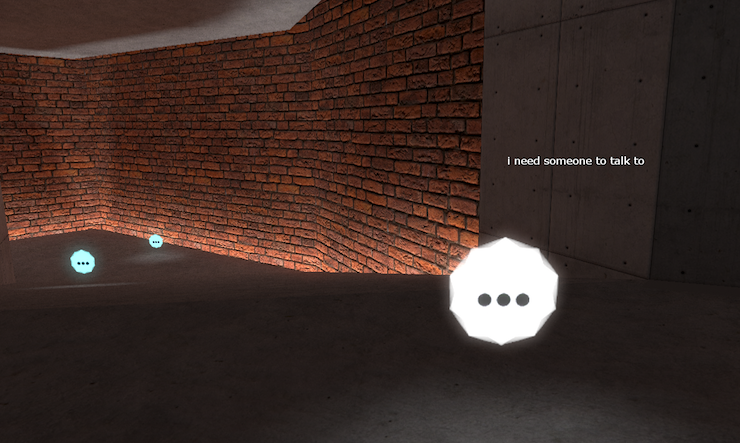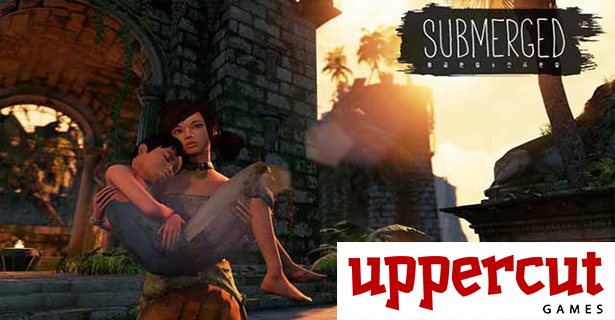Prior to heading home for Thanksgiving, I picked up the Oregon Trail card game. As I wrote about before, my mother has recently expressed an interest in playing games, and I thought the game would be fun and nostalgic. I missed the mark a bit on the nostalgia part, however, as neither my mother nor my sister remembered the game at all. At one point, my sister said, “Why is this referencing a space bar?” Still we had fun, although they mostly found the game to be a bit on the violent side. It’s quite a difficult game, and we kept losing. Finally, my mother decided we were doing it wrong, and we needed to just be more willing to kill some of us off to save the rest. My, how quickly we turn on each other! Of course, I don’t think my mom would be that quick to kill us all off in real life, but I started to think of the game as a terrible metaphor for real life.
I remember playing the game in school, and I remember we were suppose to learn something from it. I couldn’t quite remember what, so I went to Wikipedia, which told me the game was “designed to teach school children about the realities of 19th century pioneer life on the Oregon Trail.” That makes sense, but I felt like there was more to it for me. After a while, I realized what I was trying to remember was the racism surrounding the conversations around the game. I don’t remember if anyone explicitly connected racist themes to the game per se, but I remember that I felt a real, empathetic fear for those on the Oregon Trail. Someone taught me that Native Americans were savages, and I remember thinking that beyond the difficulties of trying to survive on the trail, the travelers had to fear getting murdered by random savages. I googled around to try to see if the game itself was racist or if this idea was something I picked up in school. (I went to school in Texas.) I found an “Ask me Anything” Reddit thread with commentary from the developer, Ron Rawitsch:
I was a bit surprised to learn that the dev was attentive to the possibility for racism so long ago. But, I learned it from somewhere. I can’t remember when I learned more about what actually happened with colonialism, but I suspect it was after my Texas public education. I likely didn’t learn the real story until I was an adult. Unfortunately, at least in Texas, we are still dealing with revisionist history. And, I recently had a Facebook discussion about the state of education in general, and more specifically, in Texas. I had this conversation with a Texan who felt the problems with education fall solely on the shoulders of academia. I tried to engage with him about more recent issues with revisionist history in textbooks (specifically this story from Texas about the narrative of the African “workers”), he claimed to not have heard about this story, but did admit that “if it was true, it was a problem.” Yes, it is a problem. Politicizing textbooks and allowing the erasure of history seems to be part of what led us to where we are today. Pushing actual educators out of the picture in favor of politicians not only works to erode our educational system, but has served to reinforce racism (both overt and structural) in pretty obvious ways.
We seem to be moving more and more quickly towards a post-fact society. Last week I read this Twitter exchange between Arron Banks, a millionaire who funded Brexit, and Mary Beard a classicist at Cambrige. This exchange highlights the idea that “my opinions are just as good as your facts” that we keep hearing over and over again. My experience with the racism I was taught as a child affected my experience with Oregon Trail the video game. Someone taught me that racism in the 70’s or early 80’s. Today people continue to try to erase the horror of slavery from textbooks. And, today many people really feel that their opinions are just as good as facts. Playing Oregon Trail again after all these years allowed me to see at least one area in which I was very misinformed as a child, and I’m sure there are other areas. I don’t know how to fight against revisionist history and the dismissal of expert options except to keep on talking and writing and thinking.





